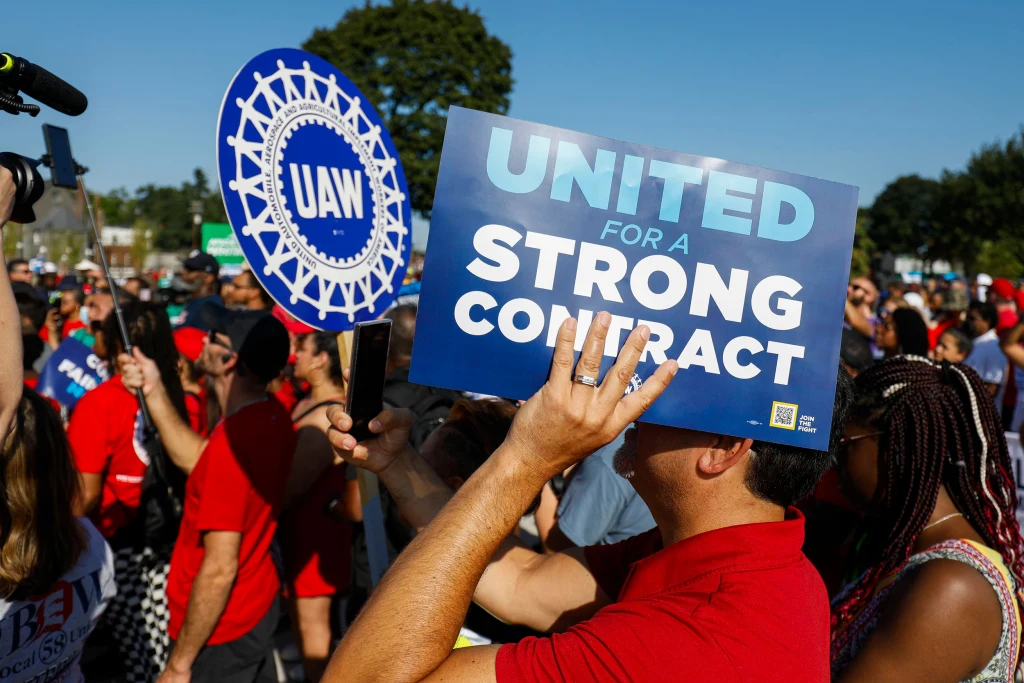More than thousands of members of the United Auto Workers (UAW) went on strike at three U.S. assembly plants of General Motors, Ford Motor, and Stellantis, after the union and the automakers failed to acquire a deal on a new labor contract on Thursday night.
The Union said on X, formerly known as Twitter, just after midnight on Friday that the UAW Stand Up Strike begins at all three of the Big Three.
The facilities are GM’s midsize truck and full-size van plant in Wentzville, Missouri; Ford’s Ranger midsize pickup and Bronco SUV plant in Wayne, Michigan; and Stellantis’ Jeep Wrangler and Gladiator plant in Toledo, Ohio. For Ford, Shawn Fain, the UAW President, said only employees in paint and final assembly will be on strike.
Fain said exceeding the Ford facility in Wayne, minutes after the strike started that we got to do what we got to do to get our share of economic and social fairness in this strike. We’re heading to be out here until we get our allocation of economic justice and it doesn’t matter how long it brings, Fain added.
The specified plants build highly profitable vehicles for the automakers that broadly continue to be in high demand. About 12,700 employees – 5,800 at Stellantis, 3,600 at GM, and 3,300 at Ford – will be on strike at the plants in total, the union said. The UAW represents about 146,000 employees across Ford, GM and Stellantis.
Referring to the automakers, Fain said early Friday that if they reach the pump and they take care of their employees, we’ll be back to the job, But if they don’t, we’ll keep amping it up.
Fain said just after 10 p.m. on Thursday in live statements streamed on Facebook and YouTube that For the first time in our history, we will strike all three of the ‘Big Three’ at once.
Fain has referred to the union’s projects as a “stand-up strike,” an acknowledgment of historic “sit-down” strikes by the UAW in the 1930s.
Ford, in a statement on Thursday night, said the UAW delivered its “first substantive counterproposal” to four of the company’s suggestions, but it “showed little motion from the union’s initial demands.”




